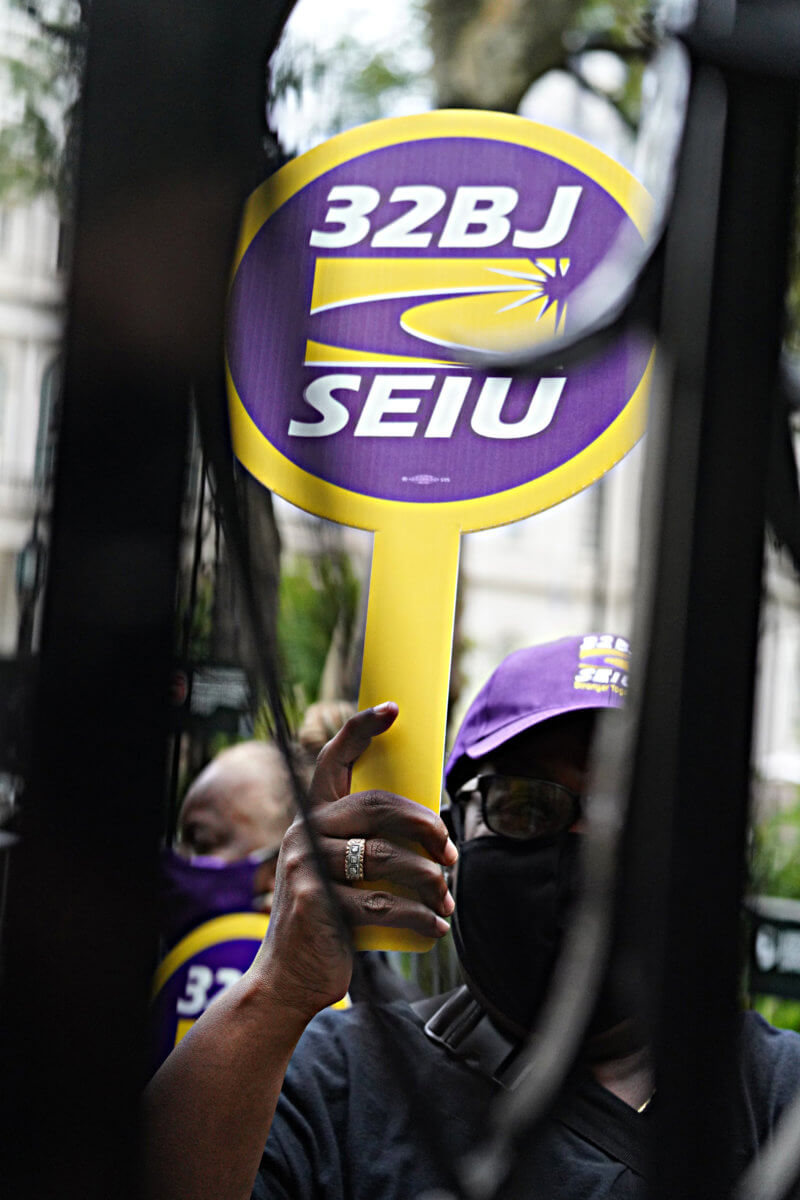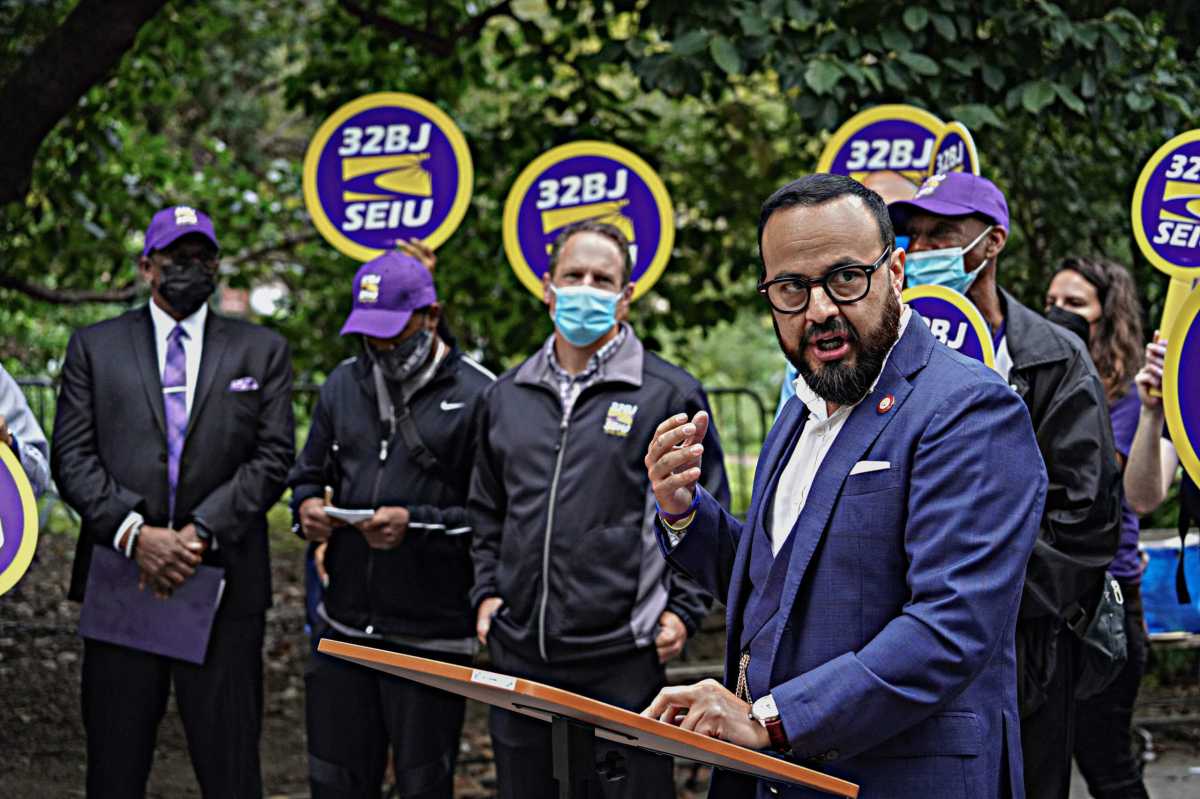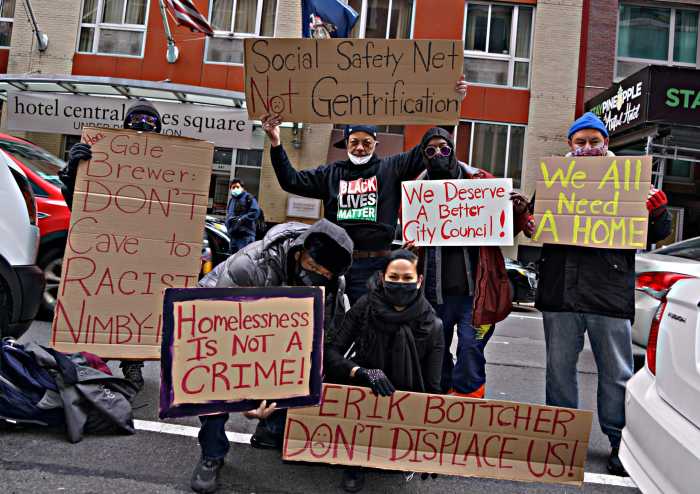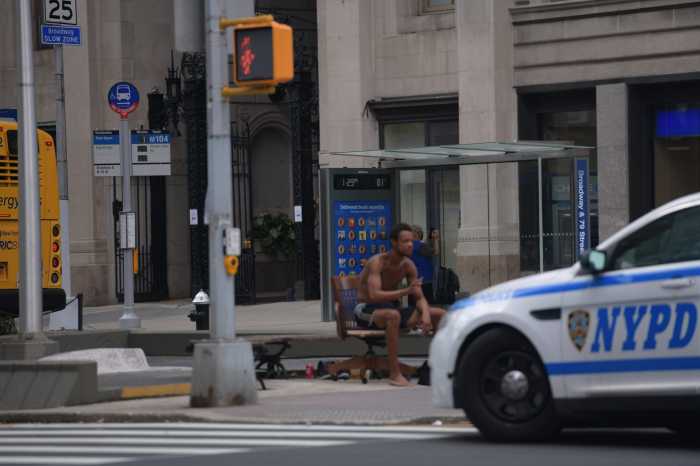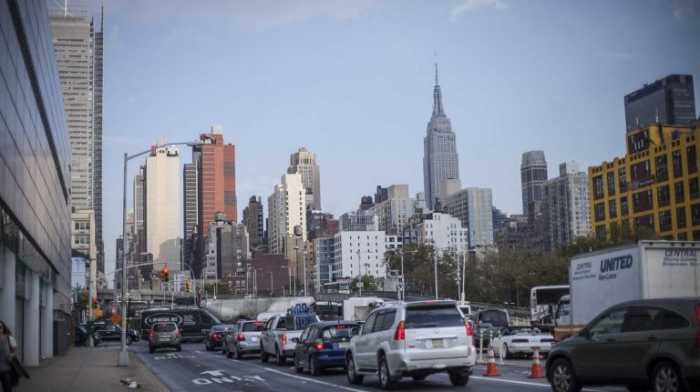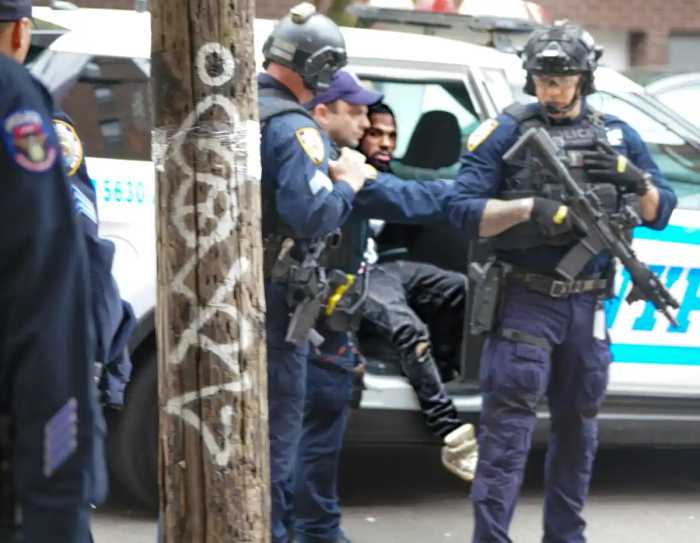City Hall Park was flooded with a sea of purple and yellow signs on Oct. 7 as security officers and their union 32BJ demanded the Safety in Our Shelters (SOS) Act be passed. They would get their wish at the City Council stated meeting that afternoon.
Security officers who work inside homeless shelters throughout the five boroughs rallied ahead of a City Council vote on a bill designed to raise wages and expand benefits and training for those who work at privately-run, city-contracted shelters. The legislation, which is sponsored by Council Members Francisco Moya and Diana Ayala, will ensure 4,000+ security workers will receive earnings that will fully cover living expenses, something many workers stated they are currently denied.
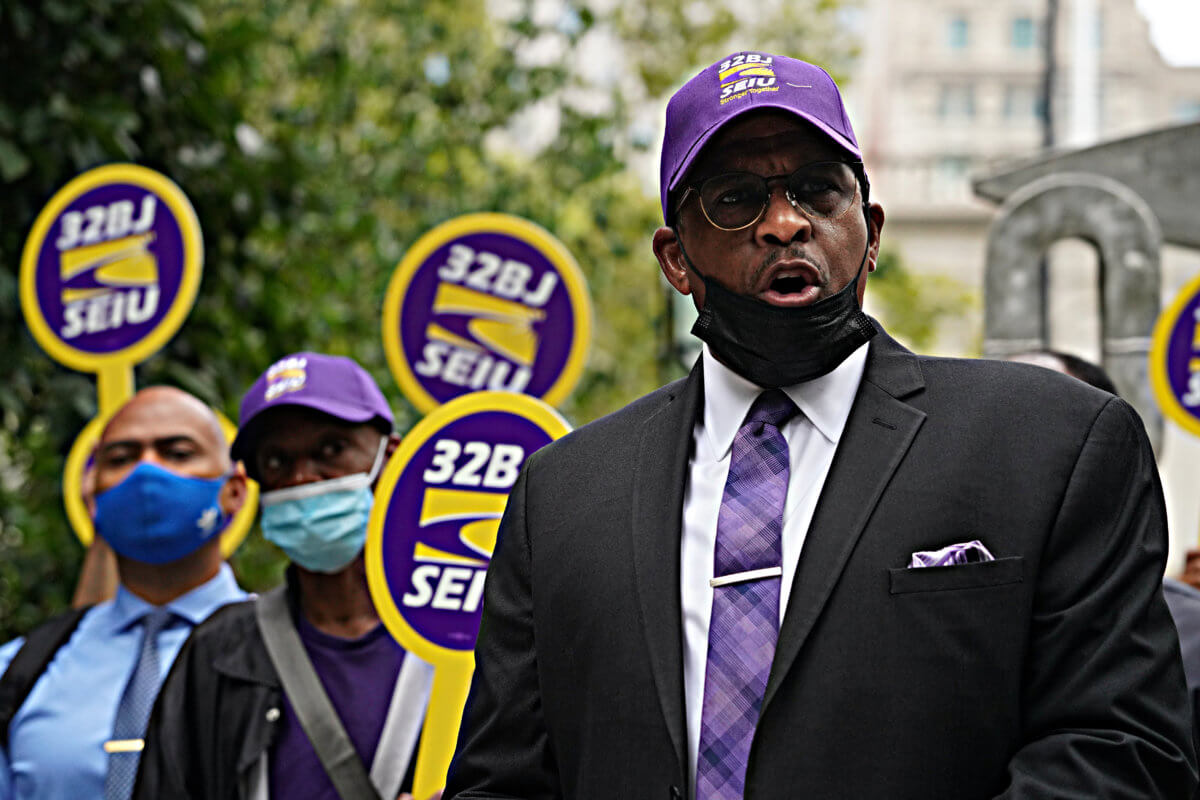
“Over 90% of the workforce is made up of people of color, and they struggled to bring food to the table, pay their rent and access lifesaving medical debt,” President of 32BJ Kyle Bragg said. “No one who is working full time — no one should be worried about keeping a roof over their heads. You get up every day, you go to work in service of the public, and you should not worry about how you put food on your table.”
In addition to stating that security officers are paid minimally, they also say they suffer homelessness at a rate four times higher than the New York City average while also working uninsured.
Mike Gang, a 15-year veteran security worker in the Bronx, began experiencing issues when his employer altered from City-run to a nonprofit, after which time he said he struggled to provide for his family, and according to a study by 32BJ, he is not the only one. The study found that 30% of the officers employed at their current shelter site have experienced housing stress, ranging from missing rent or mortgage payments to having no permanent housing.
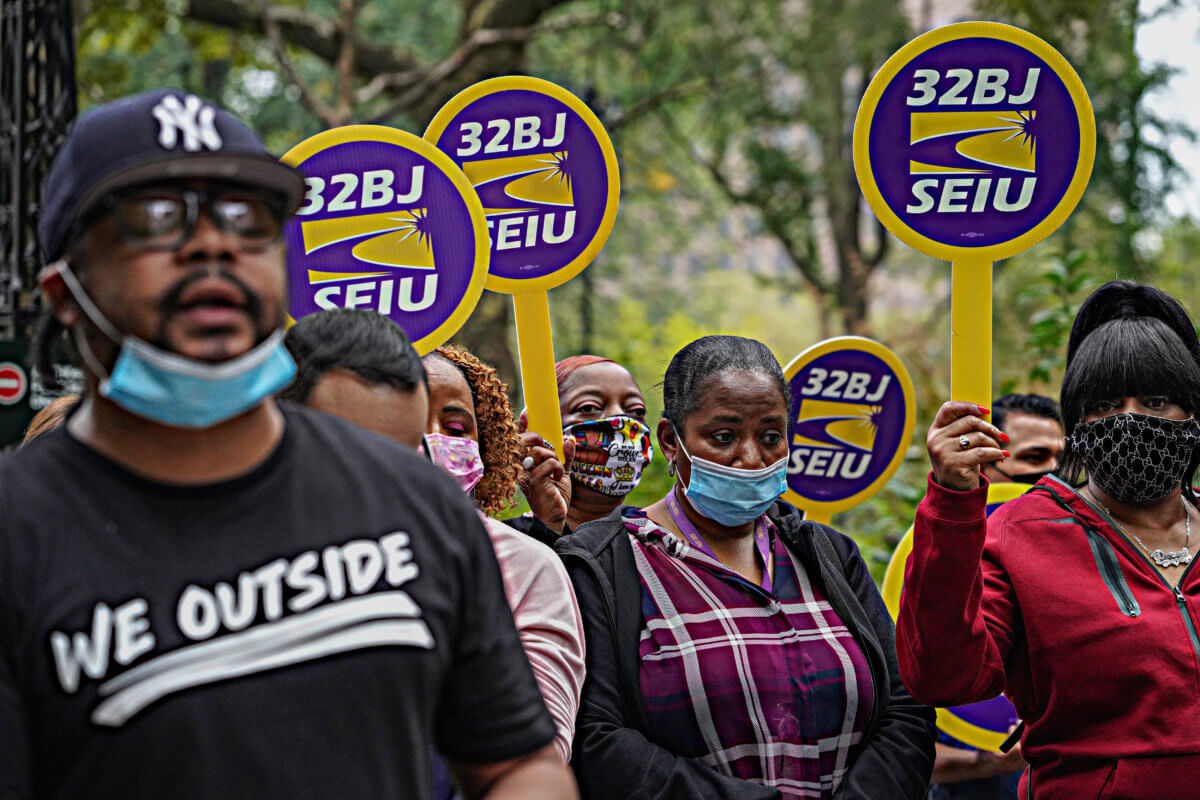
“On days like this, we stand on the precipice of change for an entire industry,” Council Member Francisco Moya said. “These 4,000+ workers, majority Black, Brown, and immigrant, deserve to earn decent standards so they can provide for their families.”
That change came this afternoon, much to the delight of its sponsors and supporters, it was announced that Intro. 2006, which ensures an industry standard wage and benefits passed 44-1, while Intro. 1995-2020 requiring at least 40-hours post assignment training—matching the standard for guards at city-run sites—passed unanimously. This victory comes after months of protesting.
